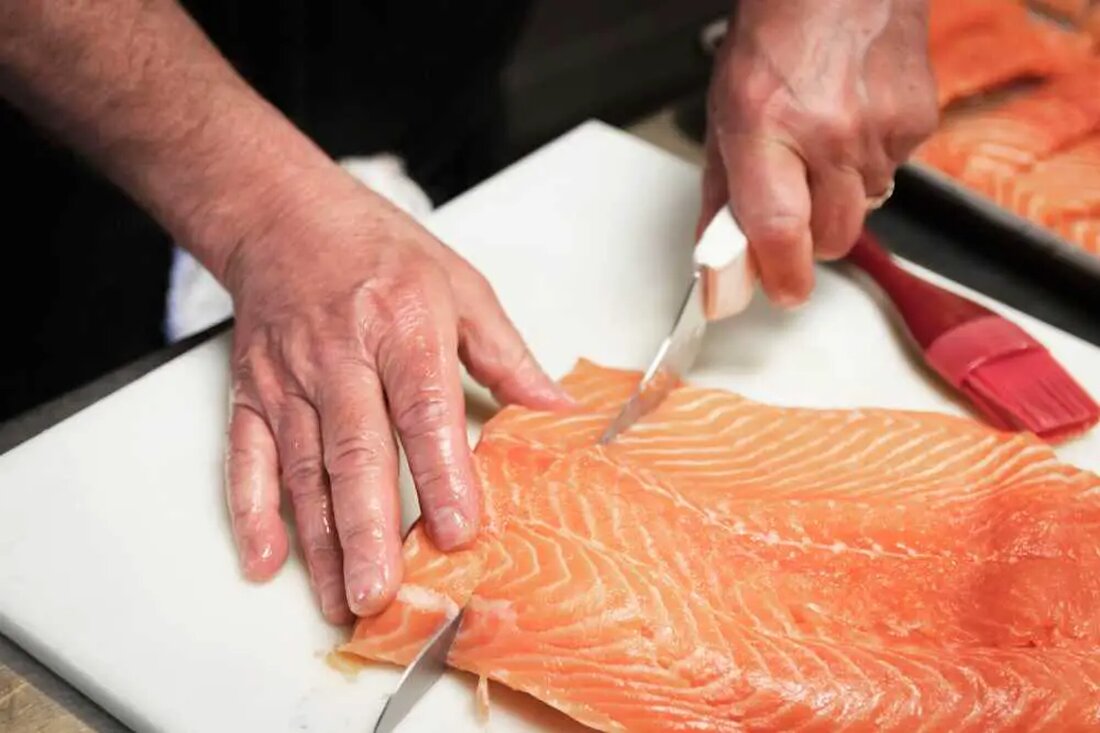Revolutionary experiment meets resistance: Liberation of the GM salmon industry from AquaBounty Technologies meets legal disputes and consumer skepticism.
A Revolutionary Experiment Faces Resistance One of the most groundbreaking innovations in the fishing industry in recent times is the introduction of genetically modified (GM) salmon. AquaBounty Technologies, the company behind this pioneering work, has developed genetically modified salmon that grows faster than its non-GM counterparts and aims to reshape the salmon industry. Despite technological advances, GM salmon faces various obstacles, including legal battles and consumer skepticism. A production halt: A victory for anti-GMO activists According to a report from CBC Canada, AquaBounty recently decided to stop producing GM salmon at its facility in Prince Edward Island, Canada. The facility that…

Revolutionary experiment meets resistance: Liberation of the GM salmon industry from AquaBounty Technologies meets legal disputes and consumer skepticism.
A revolutionary experiment meets with resistance
One of the most groundbreaking innovations in the fishing industry recently is the introduction of genetically modified (GM) salmon. AquaBounty Technologies, the company behind this pioneering work, has developed genetically modified salmon that grows faster than its non-GM counterparts and aims to reshape the salmon industry. Despite technological advances, GM salmon faces various obstacles, including legal battles and consumer skepticism.
A Production Stop: A Victory for Anti-GMO Activists
According to a report from CBC Canada, AquaBounty recently decided to stop producing GM salmon at its facility in Prince Edward Island, Canada. The facility, which was the first of its kind in the world, is now being converted to produce non-GM salmon eggs for aquaculture.
GMO Free PEI's Sharon Labchuk commented on the development, saying, "This is a huge victory for everyone on PEI and across Canada who has protested against this dangerous technology. Genetically modified fish are unnecessary and risky." The company made this decision after just two spawning cycles due to a lack of consumer interest.
The controversy continues in the United States
Although the GM salmon story appears to be coming to an end in Canada, it is far from over in the United States. Unlike Canada, where GM foods are required to be labeled, GM salmon in the United States are not required to carry any labels. This makes potential consumer reactions less predictable. Additionally, AquaBounty has proposed building a $300 million production facility in Ohio, which could significantly impact the American salmon industry.
Health concerns and ecological risks
One of the main reasons for consumer resistance to GM salmon is the lack of long-term safety data. Although these fish have been approved by agencies such as the FDA, critics argue that the approval process did not adequately assess the long-term health risks. The organization GMO Free USA has been particularly vocal in emphasizing the need for comprehensive studies.
In addition, environmentalists raise concerns about the potential ecological impacts, particularly if GM salmon were to escape from natural waters. There are fears that these modified fish could compete with or reproduce with wild salmon, disrupting local ecosystems.
Consumer Activism and Future Steps
Several nonprofit organizations and consumer groups are campaigning against GM salmon. They have called on their supporters to actively participate in public forums and boycott the purchase of GM salmon products to pressure AquaBounty to return to producing non-GM salmon. According to GMO Free USA, the fight is far from over, and they are determined to ensure that the company has “no market for their GMO scrap.”
Alternatives for health-conscious consumers
If you are concerned about GM salmon but still want to incorporate fish into your diet, consider purchasing wild-caught salmon, which is naturally rich in omega-3 fatty acids and other nutrients. There are also herbal algae-based omega-3 supplements that offer a vegan alternative.
AquaBounty's halt to production of GM salmon at its Canadian facility represents a significant moment in the ongoing debate over genetically modified foods. The development has been hailed as a victory by anti-GMO activists and signals a shift in consumer sentiment. While the problem appears to be easing in Canada, the fight over the future of GM salmon remains in the United States.
AquaBounty's planned $300 million facility in Ohio could still dramatically change the American fishing industry unless consumer activism and regulatory considerations get in the way. Regardless of one's stance on GMOs, the case of GM salmon highlights the complex interplay between technological advances, public opinion, and environmental and health concerns. As a consumer, it is important to be informed and proactive to help shape the food industry of the future.

 Suche
Suche
 Mein Konto
Mein Konto
